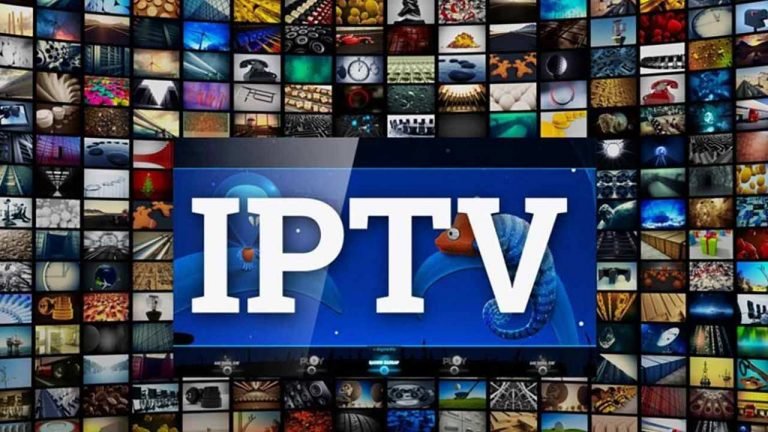
In the digital age, the way we consume media has dramatically shifted. Gone are the days when people relied solely on traditional cable or satellite services to access their favorite TV shows or movies. A revolutionary service known as IPTV (Internet Protocol Television) is transforming the landscape of entertainment. But what exactly is IPTV, and why is it becoming so popular? This article will dive into everything you need to know about IPTV, its benefits, and why it’s gaining traction worldwide.
What is IPTV?
IPTV stands for Internet Protocol Television. Unlike traditional broadcasting methods that use cable or satellite signals, IPTV delivers television content over the internet. This method enables users to stream live television, on-demand videos, and even catch up on previously aired shows through an internet connection. Essentially, IPTV allows you to watch what you want, when you want, using a wide range of devices such as smartphones, smart TVs, computers, or dedicated IPTV boxes.
How Does IPTV Work?
IPTV works by sending the television signal in the form of data packets over the internet. Instead of receiving content via a satellite dish or a coaxial cable, IPTV users rely on broadband or fiber-optic internet connections to stream television content. The process is similar to how other streaming services like Netflix or YouTube operate but with more extensive television programming options, including live broadcasts.
IPTV services typically offer three different formats:
- Live TV – Stream live TV broadcasts in real-time.
- Time-Shifted TV – Allows users to watch previously aired programs on demand.
- Video On Demand (VOD) – Access a library of movies, shows, and videos available to watch at any time.
Advantages of IPTV Over Traditional TV Services
IPTV has several advantages over traditional cable or satellite TV services, making it an attractive option for users looking for flexibility, variety, and cost-effectiveness.
1. On-Demand Viewing
One of the biggest selling points of IPTV is the ability to watch content on demand. Unlike cable TV, where viewers are limited to the scheduled programming, IPTV users can choose from a library of available content to watch whenever they like. This flexibility is particularly useful for people with busy schedules who want to watch their favorite shows at their convenience.
2. Greater Channel Variety
IPTV services often come with access to thousands of channels from around the world, covering everything from sports and movies to news and documentaries. This is far more comprehensive than the options available through traditional cable or satellite packages, which are often geographically restricted.
3. Multi-Device Compatibility
With IPTV, users can watch their favorite content on a wide range of devices. Whether it’s a smart TV, laptop, tablet, or smartphone, IPTV ensures that users can access their television services from virtually any location. This makes IPTV perfect for people who want to watch TV on the go, whether at home, during a commute, or even while traveling abroad.
4. Cost-Effective
IPTV is often more affordable than traditional TV services. Since it eliminates the need for expensive infrastructure like satellites or cable lines, service providers can offer IPTV at a more competitive price. Additionally, IPTV services usually don’t require long-term contracts, giving users the flexibility to change plans or providers as needed.
5. Customizable Experience
IPTV allows users to tailor their viewing experience. Whether it’s setting parental controls, creating personalized watchlists, or choosing specific subscription packages, IPTV provides more customization options than traditional TV services.
Types of IPTV Services
There are various types of IPTV services available in the market, catering to different viewing preferences. Some IPTV services offer access to live TV, while others focus more on video-on-demand content. The following are the most popular IPTV service models:
1. Subscription-Based IPTV
This is the most common type of IPTV service, where users pay a monthly fee to access a range of live TV channels and on-demand content. Subscription-based IPTV often comes with additional features like DVR capabilities and multi-device streaming.
2. Free IPTV Services
Free IPTV services are available but often come with limited content and lower streaming quality. These services usually offer access to a few channels or on-demand content supported by advertisements.
3. Pay-Per-View IPTV
Some IPTV services allow users to pay for specific events or shows rather than subscribing to an entire package. This is especially popular for watching live sporting events or concerts.
IPTV and Internet Speed
One of the most crucial factors in ensuring a smooth IPTV experience is a fast and stable internet connection. IPTV requires significant bandwidth, particularly when streaming live TV or high-definition content. A slower connection could result in buffering, lag, or poor picture quality. Generally, a broadband connection with at least 10 Mbps is recommended for standard streaming, while 25 Mbps or higher may be needed for HD or 4K content.
Is IPTV Legal?
The legality of IPTV depends on the service provider. Official IPTV services, such as those offered by cable companies or streaming services like Hulu and YouTube TV, are entirely legal. However, there are many unlicensed IPTV services that provide access to pirated content, which is illegal in most countries. Users should be cautious when selecting an IPTV provider to ensure they are using a legitimate service.
The Future of IPTV
IPTV is poised to continue growing as more people shift away from traditional TV services in favor of internet-based solutions. With the ongoing advancements in internet infrastructure, such as the rollout of 5G and fiber-optic networks, IPTV services are expected to become even more accessible and reliable. In the coming years, IPTV could very well become the dominant form of television broadcasting, offering more variety, convenience, and flexibility than ever before.
Conclusion
IPTV is reshaping how we consume television, offering a wide array of benefits such as on-demand viewing, greater channel variety, and multi-device compatibility. As more people turn to streaming services and internet-based solutions, IPTV is likely to become an increasingly popular alternative to traditional cable and satellite TV. However, users must ensure they are using legitimate IPTV services to avoid legal issues. Whether you are looking for live TV, catch-up programming, or a vast library of on-demand content, IPTV has something to offer for every type of viewer.






